Saturday, March 27, 2010
Review: "The Marching Morons" by Cyril M. Kornbluth
Where is our true 20th century or 21st century heir to the Mark Twain who wrote such tales as "The Man Who Corrupted Hadleyburg" and the short-story cycle, Letters from the Earth? In short where is the imaginatively talented American author who deeply perceives the flaws of our bumptious American culture, can satirize them with both devastating and hilarious effect, and yet still preserve the voice of humanity and compassion? This is no easy balancing act to accomplish, and Mark Twain might have been singular, even though American culture kept evolving the same foibles after he died, if only in new forms. I believe I have found the heir, though he too is now dead (even while his prescient ideas make him Twain's standard-bearer into the 21st century). The award for carrying on this tradition of rare satirical quality goes to Cyril Kornbluth, whose origins could not be more different than our Gilded Age Missourian, Samuel Clemens (aka, "Mark Twain"). Kornbluth was every bit the red-blooded American that Twain was, but he hailed from New York and wrote his greatest works during the banal hubris of Post WWII America. Despite their regional and temporal differences, I think these two chaps would have had a strong affinity for each other had they met, and even now are likely having some delightful conversations in heaven. To illustrate why I believe Kornbluth is Twain's heir (at least in terms of Twain's humorously yet still humane bitter side), I could cite quite a host of stories to back up this claim, including the most excellent, "The Little Black Bag", and, "The Cosmic Charge Account". I certainly will eventually write proper reviews of those two short works one day. But the best illustration of what I am talking about in particular right here is "The Marching Morons", a twenty-four-page short story, originally published in 1951. It is insidiously shocking, endlessly surprising, insanely hilarious, and yet at the same time deeply sobering, and presents a very probable future if sociological trends (which began in the nineteen-fifties throughout the Western world -- not just America, and continue to this day in the twenty-teens) do not change. What Kornbluth is talking about is the tendency of financially prudent and career-burdened folk (reflective of their higher intelligence) to decide (at best) to merely replace themselves reproductively (i.e., have two children), but more often choose to only have one child -- or even no children at all. Well, Kornbluth looks at this sociological phenomenon observable in his own day (say what you will about the plethora of baby-boomers), and asks, what if this trend doesn't change as the decades and centuries wear on? How will civilization survive if it is only those of average or low intelligence who have oodles of children? His projection in the story at hand is a society daily on the brink of collapse if not for the exhaustive multi-vocational talents of a few million extremely dedicated people of true intelligence managing the lives of many billions of people whose average intelligence over the centuries has degenerated to "45" on the I.Q. scale. This minority works behind the scenes, but is fast approaching a limit in their labor capacity to offset a total disaster stemming from what is euphemistically referred to as "the Problem". In short, this altruistic minority of intelligent and properly reasoning folk are the slaves to the population mass, of whom the latter believe they actually run the world. There are a host of normal human foibles that Kornbluth explores in their gross expansion in this dystopian future, including machisimo-driven warfare, illusory technological power, mindless carnal appetites, adolescent escapism, not to mention vehicular debacles in aerial and street traffic due to absurdly distracted pilots and drivers. For those who have won their way to positions of "official" responsibility among the more intelligent morons, the truly intelligent minority (working in their humble, low-profile positions) use post hypnotic suggestion strategies to prevent these "leaders" from sending their societies or organizations into crisis situations. Throughout the story Kornbluth employs multiple layers of psychological absurdity that create avalanches of humor in the reader's imagination, and such mental impacts will elicit rude outbursts of guffaws if you happen to be in a public space. However, the story never loses its sober interest, which is the struggle of this covert organization of the remaining intelligent folk to avert the tipping point of global disaster. The protagonist of the story, a true anti-hero, is John Barlow, a corrupt real-estate business man, with a horse-trader's gift of persuasion, ruthless self-interest, and the wheeler-dealer savvy of a true urbane cynic. But he does not belong to the age in which this story takes place. He has been preserved by an electro-chemical mistake performed at a dentist office in the late twentieth century, and the crypt that has held his uncorrupted body and catatonic consciousness is fortunately (though accidentally) discovered by one of the intelligent renaissance men, who revives Barlow using a simple hypodermic procedure. After a comically fantastic odyssey in which Barlow realizes he has reached a future where the world has been turned upside down, the secret organization of the remaining intelligent people of Earth, realize that not only is Barlow someone who belongs with them, but that he also might possess a character of insight that could save human civilization. Of course, as soon as Barlow realizes how much they need him, Kornbluth takes the opportunity to show in his protagonist all the stubborn short-sightedness, bottomless egotism and inane provincial bigotry that most of the financially successful white men of his own era exude, made all the more ridiculous when compared with the self-sacrificing and humanely rational industriousness of the intelligent minority trying to preserve the human race in this future setting. In the end, Barlow really does save the human race, but his solution and methods are bitter in their resort, absolutely dictatorial, psychologically adept, tin-pan alley hustling updated to the umpteenth power, and unconscionably deceitful. As for Barlow's fate after the terrible work is done, I will leave that for the reader to discover, but the story's resolution brings a sobering relief, and a contemplation not lending itself to a restful state of mind. This tale may be found most recently published in: His Share of Glory: The Complete Short Science Fiction of C.M. Kornbluth. Edited by Timothy Szczesuil. Published by NESFA Press. Copyright 1997.
Subscribe to:
Post Comments (Atom)
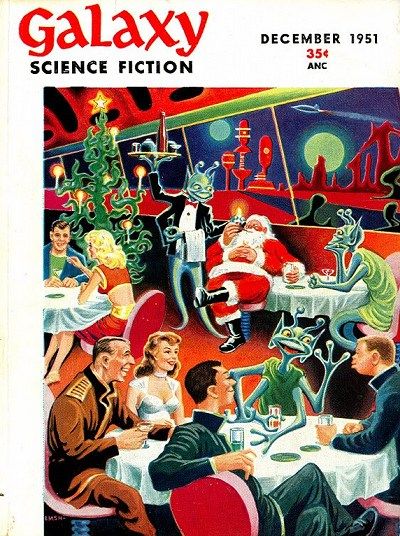








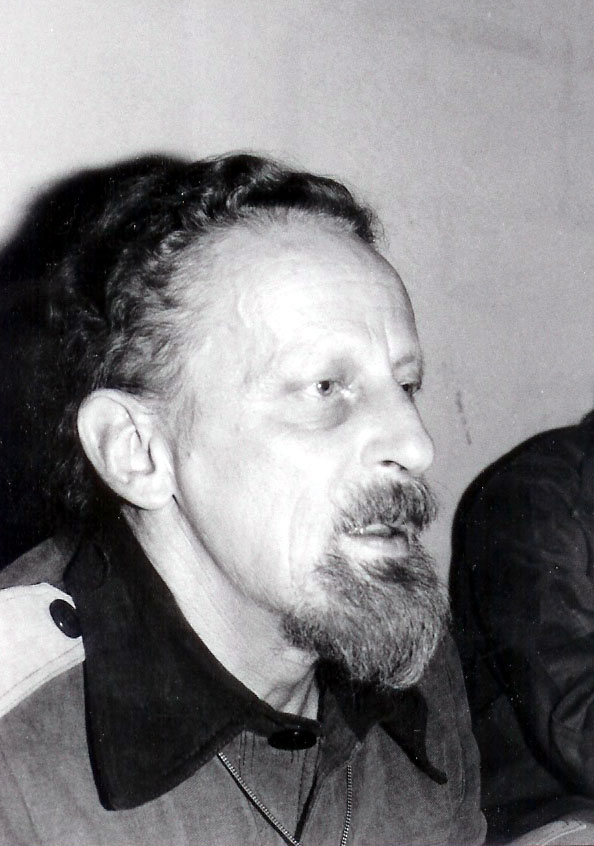



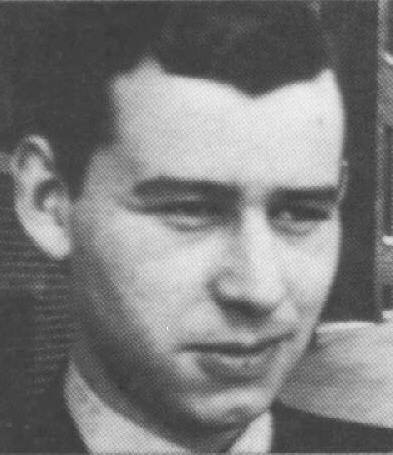






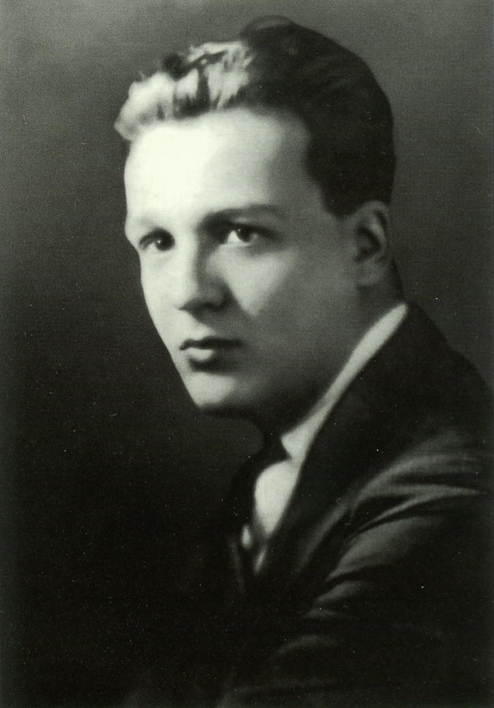



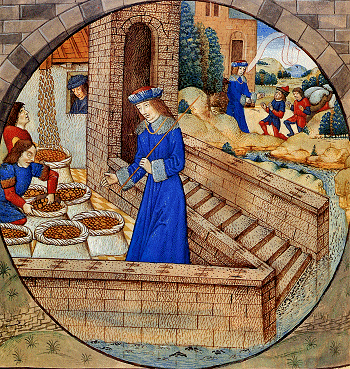


No comments:
Post a Comment